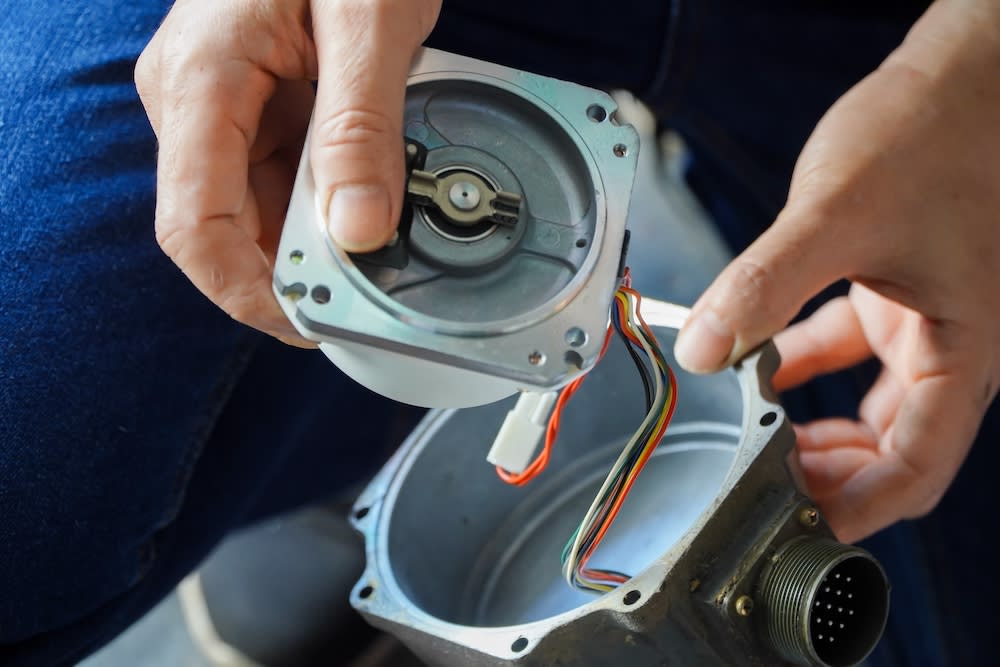- Published 5 Mar 2024
- Last Modified 5 Mar 2024
- 5 min
Navigating the World of DC Motors: Brushed vs. Brushless
Explore the differences between brushed and brushless DC motors, and how to choose the right one for all your industrial needs in our comprehensive guide.

In the dynamic landscape of industrial automation and control systems, the prominence of DC motors cannot be overstated, particularly in sectors like manufacturing, robotics, and automation within Singapore. Serving as the backbone of numerous industrial applications, these motors are predominantly categorised into brushed and brushless variants. The distinction between a brushless DC motor and a brushed DC motor plays a pivotal role in optimising performance and efficiency across a myriad of industrial scenarios.
This significance is underscored by the robust growth of Singapore's DC motor market, which is projected to reach a value of $87.7 million by 2026, expanding at an average annual rate of 2.9% from 2021. This growth reflects the increasing reliance on advanced electric motor technologies to meet the evolving demands of industrial automation and underscores the necessity of comprehending the nuances between brushed versus brushless DC motors in this rapidly advancing sector.
In this blog, we delve into these two types of DC motors, unravelling their characteristics, applications, and considerations to guide you in making the most informed and effective choices for your industrial needs.

Understanding Brushed DC Motors
Brushed DC motors, embodying a traditional electric motor design, have long been integral to the fabric of industrial automation and control systems. Central to their construction is the commutator and brushes arrangement, which plays a vital role in directing the electrical current, thereby governing the motor’s speed and torque. This classic design has cemented the brushed DC motor as a reliable component in various industrial applications, particularly valued for its straightforward operation and cost-efficiency.
These motors find their niche primarily in applications where the balance of power, cost, and spatial constraints is crucial. This includes lower power or portable devices, where brushed DC motors excel due to their uncomplicated design and affordability. However, the essence of their construction brings inherent limitations. The physical contact between the brushes and the commutator, while effective in current transmission, also invites wear and tear over time, necessitating periodic maintenance. This frictional contact not only affects the motor's durability but also has implications on its operational efficiency.
Understanding Brushless DC Motors
Brushless DC motors represent a leap in electric motor technology, addressing many limitations of their brushed counterparts. Unlike brushed DC motors, brushless DC motors operate without the traditional commutator and brushes mechanism. Instead, they employ an electronic control system to manage the flow of current. This innovative approach not only boosts the motor's efficiency but also significantly diminishes wear and tear, attributed to the reduction of mechanical parts in motion. The absence of brushes means there’s less friction, leading to enhanced performance and a marked increase in the motor's lifespan.
The primary advantages of brushless DC motors lie in their exceptional efficiency and reliability, coupled with a significantly prolonged operational life. These motors are characterised by their ability to deliver consistent power output and superior speed control. The electronic management of current also allows for more precise control of the motor, making brushless DC motors a preferred choice in complex industrial control systems and high-performance applications. They are especially favoured in scenarios where maintaining efficiency and reducing maintenance overheads are crucial, such as in sophisticated industrial automation systems and high-end machinery.
Making the Right Choice: Brushed or Brushless?
In the selection of the right DC motor for industrial automation and control systems, several key factors must be considered, each essential in determining the most suitable motor type for your specific requirements:
- Power Requirements: Brushless DC motors are generally the preferred choice for applications that demand higher power and greater efficiency, making them ideal for more rigorous industrial tasks.
- Control Complexity: While brushless DC motors offer enhanced precision in control, they often require more complex control systems, a vital factor in advanced industrial automation setups.
- Cost Considerations: Upfront, brushed DC motors are typically more cost-effective. However, brushless DC motors can present better long-term value due to their lower maintenance costs and extended lifespan.
- Application Specificity: The specific demands of your application are crucial. Evaluate whether the robustness and efficiency of a brushless DC motor are necessary or if the simplicity and cost-efficiency of a brushed DC motor are more suitable.
- Longevity and Maintenance: Brushless DC motors are known for their longer operational life and reduced maintenance needs, an advantage in settings where continuous or high-demand operation is expected.
Empowering Your Industrial Needs with the Right DC Motor

Both brushed and brushless DC motors play pivotal roles in industrial applications, each with unique features catering to different needs. For industry professionals in the fields of manufacturing, mechanical engineering, and electrical sectors, understanding these differences is crucial for making informed decisions.
RS Singapore, as a leading supplier in industrial components and tools, offers an extensive range of both brushed and brushless DC motors. We are committed to providing high-quality solutions that meet the diverse requirements of our clients.
Popular DC Motor Brands
Schneider Electric
Schneider Electric, a global specialist in energy management systems, is actively involved in various sectors in Singapore, from data centres to industries. Their commitment to driving digital transformation and promoting sustainability is evident in their comprehensive range of products and services.
Nidec Components
Nidec Components offers a broad spectrum of electronic products and components, essential for various industrial applications. Their range includes switches, sensors, and more, showcasing their versatility and commitment to the industrial sector.